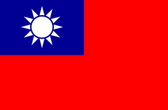
Call 0330 880 3600 Calls may be monitored or recorded. Opening Times.
- TRAVEL INSURANCE
- COVID-19 COVER
- More Options
- Help & Advice
- Existing Customers

Call 0330 880 3600 Calls may be monitored or recorded. Opening Times.

Need help?
UK Customer Services0330 880 3600*
Open Monday to Friday 9:00am to 6pm, Saturday 8:30am to 4pm and closed Sundays.
*Calls are recorded for training and quality purposes.

Official name: Republic of China (Taiwan)
Capital city: Taipei
Languages spoken: Mandarin Chinese, Taiwanese Hokkien, Hakka, Indigenous languages
Population: Around 23.5 million
Currency: New Taiwan dollar (TWD)
Time zone: GMT+8
Driving side: Right
Climate: Subtropical in the north, tropical in the south, with a typhoon season from June to October
Taiwan is a dynamic island blending bustling modern cities with stunning natural landscapes. Taipei’s night markets, skyscrapers, and temples are a major draw, while Taroko Gorge, Sun Moon Lake, and Alishan’s tea plantations showcase Taiwan’s natural beauty. The island also has a strong cultural identity, with traditions influenced by Chinese heritage, Japanese colonial history, and vibrant Indigenous communities.
Travellers should note that Taiwan is self-governing but not universally recognised as a sovereign state, leading to political tensions with China. This does not usually affect day-to-day travel but can occasionally cause diplomatic friction or heightened military activity. Public protests do occur, though they are generally peaceful. Taiwan is socially progressive compared to much of Asia, with same-sex marriage legal and widely accepted.
Taiwan is located off the southeast coast of China, bordered by the East China Sea to the north, the Philippine Sea to the east, and the South China Sea to the southwest. Around two-thirds of the island is mountainous, with fertile plains on the west coast where most of the population lives. Its position on the Pacific “Ring of Fire” means earthquakes are relatively common.
Taiwan Taoyuan International Airport (TPE) near Taipei is the primary gateway, with other international airports in Kaohsiung and Taichung. High-speed trains connect Taipei to the southern city of Kaohsiung in under two hours, while buses and metro systems make urban travel easy. Top attractions include Taipei 101, the National Palace Museum, Kenting National Park, and the offshore islands of Penghu and Kinmen. Hiking is extremely popular, and permits are required for some mountain treks such as Yushan.
UK nationals can enter Taiwan visa-free for up to 90 days. Passports must be valid for at least six months. While there is no British Embassy in Taiwan, the British Office in Taipei provides limited consular services. Visitors should also be aware that diplomatic recognition issues may restrict the assistance available.
The local currency is the New Taiwan dollar (TWD). ATMs are widespread, and credit and debit cards are widely accepted, particularly in cities. Night markets and smaller vendors may require cash, so it’s wise to carry some at all times. Prices are generally lower than in Western Europe but higher than in some neighbouring Asian countries.
Healthcare in Taiwan is excellent, with modern hospitals and clinics providing high standards of care. Treatment costs are affordable compared to Europe, but travel insurance is still essential. Tap water is technically treated, but most locals drink bottled or boiled water, and visitors are advised to do the same. Mosquito-borne illnesses like dengue fever can occur in the south during warmer months. Taiwan is prone to typhoons and earthquakes, so travellers should stay alert to local weather updates and follow safety advice.